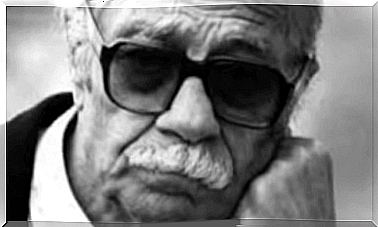The 4 Keys To Well-being, According To Richard J. Davidson

Let’s remember who Richard J. Davidson is, before we talk about the keys to well-being. He is a physician in personality, pathophysiology and psychopathology from Harvard University . He has studied emotions for many years, mainly from a neurological point of view. One thing that characterizes him is that he studies cases on a lifetime basis and does not just resort to interviews or experiments.
Based on his research and studies, Richard J. Davidson proposed the idea that, thanks to brain neuroplasticity, it is possible to learn happiness and compassion in the same way that people learn a language or other information. Based on this, he suggested the four keys to well-being.
Richard J. Davidson is also a good friend of the current Dalai Lama and a meditation student. He meditates every day and believes that it is a discipline that promotes neuroplasticity. Below we explain Davidson’s keys to human well-being.

Resilience, one of the keys to well-being
In general, resilience is the ability to recover from adversity and become stronger as a result. For Davidson, this ability is closely linked to the Buddhist concept of “non-attachment.” In other words, often the real difficulty is resistance to change.
Resilience is one of the keys to well-being. Everyone is exposed to adversity. So if a person is able to accept bad times and flow with them and interpret them as growth opportunities, it will be more difficult for them to get stuck in their problems.
2. Positive views
A positive view is not synonymous with self-deception. In this case, we are not talking about extreme optimism, which denies the existence of negative situations. Instead, we talk about the conscious choice you can make to give greater relevance to the positive aspects of each situation, no matter how negative it may be.
According to Richard J. Davidson, people who meditate experience changes in brain circuits that transform their way of perceiving reality. In a study conducted by Davidson, he identified differences between the brains of those who meditated and those who did not, and concluded that his hypothesis was true.
He claims that meditation for half an hour a day for two weeks is enough to experience the benefits of perspective changes.
In general, an abstract effort to develop a positive vision usually has very short-term effects and will therefore not have a major impact on your mood. However, those who meditate enjoy more lasting effects, which affect their emotional state.
3. Full attention, one of the keys to well-being
Another study conducted by Richard J. Davidson showed that the average person is not aware of 47% of the things they do during the day.
One of the triggers for this disorientation is multitasking or shared attention work, which is when you perform multiple tasks simultaneously without focusing on a specific task. In these cases, the mind begins to wander, going from one idea to another without any defined pattern.
Davidson found that those who work in this way are more likely to feel dissatisfied and unhappy. Therefore, he points out that one of the keys to well-being is full attention, which can be defined as mental and physical focus on the here and now.
The ability to direct your thoughts in the here and now is a skill you can also acquire through meditation. In general, when you think a lot about the future, you may start to suffer from anxiety. On the other hand, thinking about the past often leads to depression. It is less emotionally taxing to live in the present.

4. Generosity
According to Richard J. Davidson, the last of the four keys to well-being is compassion or generosity. According to this researcher, it activates giving many areas of the brain that are related to happiness and joy. In fact, generous people are almost always more at peace with themselves and tend to be calmer and more carefree.
For Davidson, generosity as well as selfishness have a boomerang effect. This does not necessarily mean that the giver receives equivalent compensation, but simply because the action provides physical and mental well-being. In other words, the one who benefits most from giving is the one who gives.
According to Richard J. Davidson, these keys to well-being coincide with many theories of psychology, as well as Buddhism. Thus, you should consider the fact that these may be the aspects that can help improve your well-being.









